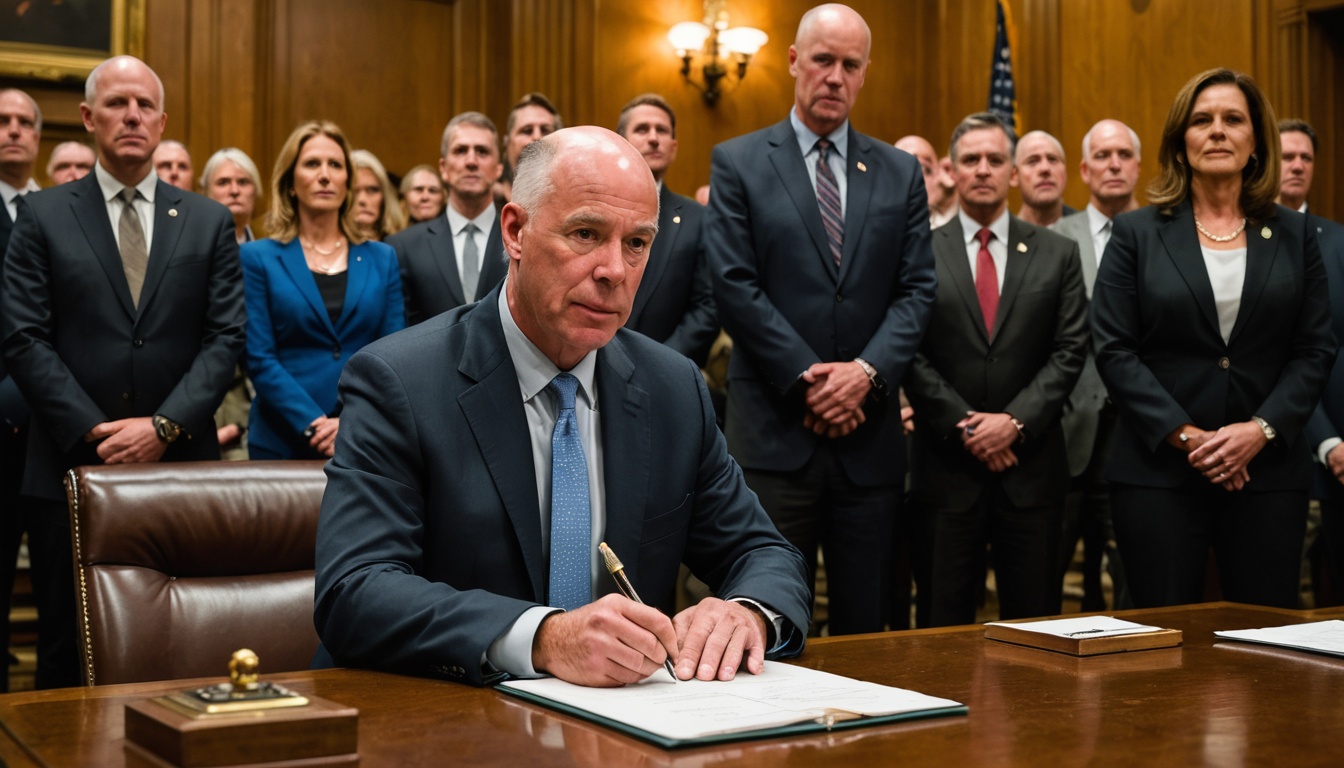Montana Governor Vetoes Bill to Fund Conservation and Law Enforcement Initiatives with Marijuana Revenue
Montana Governor Greg Gianforte has vetoed a bill that aimed to allocate a portion of the state’s marijuana revenue towards conservation, law enforcement, addiction treatment, and homelessness support initiatives. The bill, Senate Bill 537, would have divided the revenue among these initiatives, but Gianforte argued that it would have resulted in a “brazen raid” of over $141 million from the state’s General Fund over the next four years.
Senator Daniel Zolnikov, the sponsor of the bill, expressed disappointment with the veto, citing the need for the state to prioritize spending needs. He also criticized the 2025 Legislature’s political dynamics, which he said led to the need for his bill. Zolnikov placed particular blame on nine moderate Republicans who voted with Democrats on key issues, saying that the Legislature “failed to do its job” of prioritizing spending needs.
Gianforte’s veto letter stated that the bill would have grown state government at a time when the state should be focused on making it more efficient, effective, and leaner. Zolnikov countered that the governor chose to veto the bill instead of vetoing a separate proposal that established a trust fund for subsidizing child care and housing, among other government programs.
Since more than two-thirds of state lawmakers voted to pass SB 537, the secretary of state will send out a poll to lawmakers to give them an opportunity to override the veto. However, Zolnikov is not optimistic about the chances of a successful override, citing the state’s recent overspending.
The veto comes as a contrast to Gianforte’s decision to sign a competing proposal, House Bill 932, which devotes one-third of marijuana tax revenues to fund conservation and wildlife habitat programs on private and public land. HB 932 also funnels most of the remainder into the state’s General Fund, which supports K-12 education, public health programs, correctional facilities, and other government functions.












